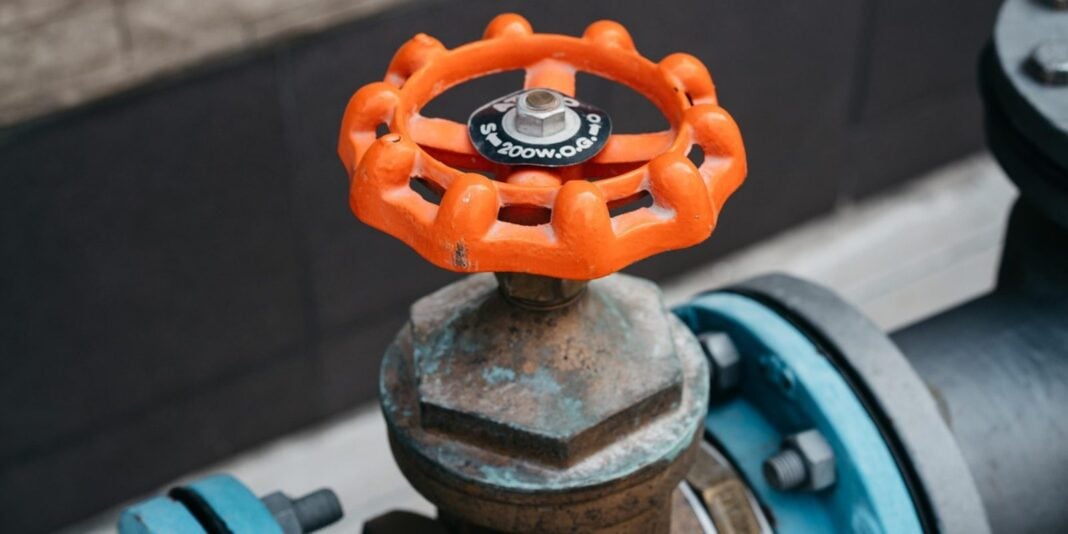Ποιος θα νικήσει στον μελλοντικό πόλεμο;
Yourvibe
Γράφει ο Γεώργιος Χ. Τορνικάντης
Υπάρχουν αρκετές γεωπολιτικές σχολές στον κόσμο, καθώς και πολλά κέντρα συμφερόντων τα οποία ασπάζονται τις γεωπολιτικές θεωρίες των σχολών αυτών. Όλα τα κράτη ασκούν την δική τους εξωτερική πολιτική και χαράσσουν στο σώμα της γης τη δική τους στρατηγική για την κυριαρχία τους στη παγκόσμια σκακιέρα και την τελική τους επικράτηση στο διεθνές περιβάλλον.
Υπάρχει όμως μια σχολή, η οποία ακολουθεί τον δικό της δρόμο εδώ και πάρα πολλούς αιώνες και μια ‘’Δύναμη’’, η οποία δεν έχει πει ακόμη την τελευταία της κουβέντα. Οι σχολές είναι οι μοναστηριακές, οι οποίες λειτουργούν ως άλλες ‘’δεξαμενές σκέψης’’ και προτρέπουν τον άνθρωπο να ασχοληθεί με τον εσωτερικό του κόσμο και να ασκήσει επιρροή και δύναμη μέσα στη ψυχή του και τον νου του και πάνω στα πάθη του. Ενώ η ‘’Δύναμη’’ είναι Θεός, ο Δημιουργός και ο Αρχιτέκτονας του ουράνιου και επίγειου κόσμου μας. Καμία γεωπολιτική θεωρία και σχολή που πηγάζει από την ανθρώπινη νόηση και τις ανθρώπινες δυνάμεις δεν μπορεί να επικρατήσει μπροστά στο Θέλημα του Κυρίου και πάνω στον Λόγο του Θεού!
Άνθρωπος και Πόλεμος
Αφορμή για αυτό το άρθρο στάθηκε η ανάγνωση ενός μικρού, συνοπτικού και εξαιρετικού βιβλίου του Αγίου Νικόλαου Βελιμίροβιτς, Σέρβου επισκόπου της Αχρίδος, ‘’Πόλεμος και Βίβλος’’, το οποίο συνέγραψε μετά από ένα ταξίδι του στην Αμερική καθώς επέστρεφε μέσω του Ατλαντικού Ωκεανού μέσα σε ένα καράβι. Ο Άγιος ‘’Χρυσόστομος’’ της Σερβίας καταθέτει στο έργο του πως ‘οι πόλεμοι γίνονται από τους ανθρώπους, ο νικητής όμως κρίνεται από τον Θεό.’’
Σε όλο του το έργο κάνει αναφορά ξεκινώντας από τους βιβλικούς πολέμους και φτάνοντας μέχρι τους δύο παγκοσμίους πολέμους της γενιάς μας, θέλοντας να επισημάνει την παρηκμασμένη και ανήθικη κατάσταση των ανθρώπων εκείνων των καιρών, την βλασφημία και την προσβολή του θείου νόμου και εντολών και την αλαζονεία και έπαρση των ηγεσιών, αίτια τα οποία επιφέρουν νομοτελειακά τον πόλεμο οδηγώντας τους λαούς και τα έθνη στη δυστυχία και στο θάνατο. Διευκρινίζει πως ακόμα και σε έναν πόλεμο, οφείλεται να ακολουθείται ένας ηθικός κώδικας και να είναι σεβαστές κάποιες αρχές, ειδάλλως η ανηθικότητα στον πόλεμο επιφέρει δυστυχία, την οποία θα την εισπράξει στο τέλος του πολέμου ο ανήθικος παίκτης της ιστορίας. Οι αμαρτίες των ηγετών προκαλούν πόλεμο και ήττα, κι αυτό γιατί όταν ένας άνθρωπος αμαρτάνει, αφορά μόνο τη δική του υπόσταση και ζωή, όταν όμως η ηγεσία ενός λαού πέφτει στη ζώνη της αμαρτίας και η αμαρτία καθίσταται νόμος μέσω της πολιτικής τους, των νομοθετημάτων τους, των λόγων τους και πράξεων τους, και ο λαός τους υπομένει και τους μιμείται, τότε μοιραίως ο εχθρός προβάλλει ως μέσο διαπαιδαγώγησης του Θεού για την εξυγίανση του ανθρώπου και την κάθαρση του έθνους. Επίσης η συμμαχία με το κακό φέρνει το κακό [iEpikaira: Παλαιότερα αναφερθήκαμε σε αυτό ΕΔΩ και ΕΔΩ], μιας και στην Ορθόδοξη Πίστη και στη χριστιανική ζωή, δεν επιτρέπεται ο άνθρωπος να χρησιμοποιήσει ανήθικα ή βλαβερά μέσα με απώτερο σκοπό να βοηθήσει συνάνθρωπο του ή να σώσει κάποιον. Όποιος φλερτάρει με το κακό, στο τέλος πέφτει στη παγίδα του κακού!
Ο Άγιος Νικόλαος Βελιμίροβιτς φέρνοντας παραδείγματα από την ιστορία μας και μέσα υπό το Φως της Αγίας Γραφής μας εξηγεί πως γίνεται στρατοί πιο ισχυροί, τακτικοί και οργανωμένοι να ταπεινώνονται στο τέλος του πολέμου και πως γίνεται μικρά, αδύναμα και ευάλωτα έθνη να στεφανώνονται τη στιγμή που όλοι ανέμεναν την ήττα τους. Το μυστικό βρίσκεται πως ο πόλεμος δεν είναι μια απτή και ψυχρή επιστήμη βάσει αριθμών, μηχανών και ρουκετών αλλά λαμβάνεται πάντοτε και ο αστάθμητος παράγοντας που λέγεται άνθρωπος και ο ψυχισμός του, καθώς και η θεϊκή παρέμβαση που θα στρέψει την πορεία του πολέμου προς το Θέλημα του Θεού.
Ο πόλεμος αποτελεί σε πρώτη μορφή μια εσωτερική κατάσταση του ανθρώπου, η οποία εδράζει στον ψυχισμό του με αποτέλεσμα να παρατηρεί τον εξωτερικό του κόσμο επιθετικά, κτητικά και χειριστικά και διαμορφώνοντας μια νοοτροπία κυριαρχίας και κατάκτησης του.
Ιστορία και Πόλεμος
Ο Σέρβος Άγιος διηγείται στο πόνημα του τα αίτια, τις πράξεις και τα αποτελέσματα του Α’ Παγκοσμίου Πολέμου θέλοντας να υπενθυμίσει στο κοινό πως εκείνη την ιστορική περίοδο η Γερμανία ήταν μια υπερδύναμη, ένα κράτος πολύ καλύτερα οργανωμένο διοικητικά και ετοιμοπόλεμο στρατιωτικά, το οποίο σύμφωνα με την στατιστική και την στρατιωτική ανάλυση των πόρων, της οικονομίας του κράτους, του όγκου της χώρας, της έμπειρης στρατιωτικής ηγεσίας και του ανθρώπινου δυναμικού έπρεπε να είχε κερδίσει τον πόλεμο από κάθε άποψη, αντί αυτού όμως υπέστη μια πανωλεθρία και μια εξευτελιστική ήττα που έγινε μελλοντική αφορμή για την θυμώδης επιστροφή της.
Παρότι ήταν ένας πόλεμος μεταξύ χριστιανικών κρατών, ένας ‘’Ευρωπαϊκός Εμφύλιος’’ κατά τον σύγχρονο Γερμανό ιστορικό, Ερνστ Νόλτε, η Γερμανία λόγω του γερμανικού συνδρόμου μεγαλομανίας είχε περάσει στο στάδιο της απόλυτης κυριαρχίας και επέκτασης της ανατολικά, συμβάλλοντας ακόμη και σε εθνοκαθάρσεις και γενοκτονίες άλλων χωρών μέσω των αξιωματικών της, όπως έπραξε στη Τουρκία όπως αναφέρει και ο Μιχαήλ Ροδάς στο βιβλίο του, ‘Πως η Γερμανία κατέστρεψε τον Ελληνισμό’’ για το πέρασμα της στην Ασία και την εξυπηρέτηση των γεωπολιτικών της συμφερόντων.
Ο μεγάλος Γερμανός Καγκελάριος Όττο Βίσμαρκ ερωτηθείς για το μέλλον της χριστιανοσύνης και το κακό που θέλει τους χριστιανούς να αντιμάχονται μεταξύ τους, θα δώσει την κυνική απάντηση ‘Και τι γίνεται αν οι χριστιανοί έχουν διαφορετικά συμφέροντα μεταξύ τους;’’ στρέφοντας το ενδιαφέρον των χριστιανών Γερμανών προς τους μουσουλμάνους Τούρκους, εφόσον οι Έλληνες χριστιανοί ‘τα είχαν βρει’’ με τους χριστιανούς ‘αδελφούς’’ Άγγλους και Γάλλους.
Για την επάξια υποδούλωση θα κάνει λόγο ο Άγιος που βρίσκει τους λαούς όταν οι ηγεσίες παίρνουν τον στραβό τον δρόμο και όταν παραβιάζουν τις άγιες εντολές του Θεού βυθιζόμενοι διαρκώς στην ακολασία της ύλης και στην διάβρωση του πνεύματος. Τέτοιο θύμα υπήρξε και η ‘’Αγία’’ Ρωσία, η οποία παρότι έχτισε μία αχανής αυτοκρατορία μέσω της Ορθόδοξης Πίστης και του Βυζαντινού Πολιτισμού και στέφθηκε Προστάτιδα των Απανταχού Χριστιανών στην Οθωμανική Αυτοκρατορία, δεν στάθηκε στο ύψος των περιστάσεων και στο κύρος της πίστεως, και η ηγεσία της υπέπεσε σε απανωτά αμαρτήματα περιφρονώντας τον λαό της και αδιαφορώντας για τους χριστιανικούς λαούς όταν θιγόταν τα γεωπολιτικά της συμφέροντα και παιζόταν το στέμμα τους. Έτσι, η θεία τιμωρία για τους Ρώσους ήταν ο μαχητικός αθεϊσμός κατά τον Ρώσο φιλόσοφο και θεολόγο, Νικολάι Μπεργιάντεφ, ενώ για τους Έλληνες του Βυζαντίου, ο αιμοσταγής τουρκισμός κατά το Οικουμενικό Πατριαρχείο.
Στο Β’ Παγκόσμιο Πόλεμο έχουμε την επανάληψη του ίδιου έργου με μια Γερμανία να επανεμφανίζεται ως μια πολεμική μηχανή, με αστείρευτες δυνάμεις, με πυρηνική ιδεολογία, με έναν αξιόμαχο και ανίκητο γερμανικό στρατό, ο οποίος εγκωμιάζεται για την πειθαρχία του, το ήθος του, την αφοσίωση του και την στρατιωτική του ικανότητα σε σύγκριση με τον γαλλικό στρατό και την νοοτροπία των Γάλλων και στα ‘’Απομνημονεύματα’’ του μεγάλου Γάλλου Στρατάρχη, Σαρλ Ντε Γκωλ, όλα αυτά εκπροσωπούμενα μέσα από το πρόσωπο ενός μεγάλου και ισχυρού ανδρός, αναντίρρητα αλλά ιδιαίτερα επικίνδυνου και αλαζόνα σε σημείο αναφοράς εωσφορικής έπαρσης, του Αδόλφου Χίτλερ.
Σχεδιάζοντας σταδιακά την αντικατάσταση του χριστιανισμού με έναν είδους ‘’Αρείου παγανισμού’’ η μεγάλη κεντρική δύναμη της Ευρώπης και κηρύττει τον πόλεμο στην άλλη μεγάλη ευρασιατική χώρα του εγκαθιδρυμένου ‘’αθεϊστικού υλισμού’’ με αποτέλεσμα τον γενικευμένο πόλεμο σε όλη την χριστιανοσύνη και σε όλα τα ευρωπαϊκά έθνη, τα οποία θα εμπλακούν σε αυτών αλυσιδωτά.
Η πτώση της Γερμανίας είναι γνωστή, όπως και η μετέπειτα διχοτόμηση της μετά την προέλαση του σοβιετικού στρατού και την κατάληψη της από τις δυτικές δυνάμεις της Αμερικής και της Αγγλίας, ανατρέποντας και πάλι τους αριθμούς και τις προγνώσεις που έβλεπαν νίκη των πολεμοχαρών Γερμανών στα αναρίθμητα μέτωπα που άνοιξε ο Φύρερ τους, οδηγώντας τον στρατό του στο ένα λάθος μετά το άλλο μετά από την παράκρουση και την τύφλωση του λόγω της κακοδαιμονίας του.
Οι χριστιανικές δυνάμεις της τότε εποχής κυριάρχησαν στον πόλεμο αυτό, και αν και συμμάχησαν με το κακό, την Σοβιετική Ρωσία, θεωρήθηκε ως ‘’αναγκαίο κακό’’ και τους οδήγησε σε σχεδόν μισό αιώνα Ψυχρού Πολέμου όπου στο τέλος επικράτησε η Χριστιανική Δύση έναντι της Άθεης Ρωσίας μετά και την κατάρρευση του σοβιετικού μπλοκ.
Επιβεβαιώνοντας με αυτό τον τρόπο πως όσους πολέμους και να κάνει ο άνθρωπος, ο Θεός θα ορίσει τον τελικό νικητή σύμφωνα με το γενικό καλό της εποχής και τις ηθικές αξίες της εν Χριστώ ζωής!
Γεωπολιτική και Στρατηγική
Η ιστορία επαναλαμβάνεται και τα κράτη που χαράσσουν την γεωπολιτική τους στον πλανήτη συνεχίζουν να αγνοούν την θεία βούληση και να παραβιάζουν τις αρχές της ανθρωπότητας. Η δίψα για πλούτο, η απληστία για το χρήμα, το πάθος για κυριαρχία, ο πόθος γα κατάκτηση και το μίσος για την εκμηδένιση του αντιπάλου έχει φτάσει σε τέτοιο σημείο όπου ο Γ’ Παγκόσμιος Πόλεμος είναι προ των πυλών. Μπορεί να μην είναι πλέον εν ζωή ο Άγιος Νικόλαος Βελιμίροβιτς ώστε να μας διαφωτίσει για τον επερχόμενο νικητή αλλά εμπνεόμενοι από το βιβλίο του και το κεφάλαιο του Ποιος θα νικήσει στον μελλοντικό πόλεμο μπορούμε εύκολα να συνειδητοποιήσουμε πως η Δύση έχει από καιρό αποβάλλει τον Χριστό από τις τάξεις της μετατρέποντας τις κοινωνίες της σε αντίχριστες δυνάμεις που καθοδηγούνται από αιρετικές ηγεσίες, σε Αμερική και Ευρώπη με την Ρωσία αυτή τη φορά να παρουσιάζεται παρόλο τον εσωτερικό διχασμό της στο θρησκευτικό θέμα [iEpikaira: Εδώ ο Άγιος Νικόλαος Βελιμίροβιτς πιθανότατα αναφερόταν στην μετά-Σοβιετική εποχή, όπου υπήρχε ακόμη έντονο το πνεύμα της κομμουνιστικής αθεΐας σε ένα μέρος του ρωσικού πληθυσμού. Κάτι που σήμερα έχει σχεδόν εκλείψει.], ως νέα χριστιανική δύναμη και εκπρόσωπος της Ορθοδοξίας.
Το γεωπολιτικό παιχνίδι της αρπαγής πόρων και της ενέργειας είναι τόσο αμείλικτο και ανένδοτο όπου δεν υπάρχει πισωγύρισμα ή χαλάρωση της επιθετικότητας και της κυριαρχίας των μεγάλων κρατών. Όσο όμως οι κοσμικές δυνάμεις σχεδιάζουν την νέα διχοτόμηση του πλανήτη σε ζώνες επιρροής και κατάκτησης της μερίδας του λέοντος, τόσο ο Θεός κατεργάζεται το δικό Του σχέδιο και ακολουθεί τη δική Του στρατηγική με σκοπό την έλευση των νέων κοσμοϊστορικών γεγονότων και των νέων γεωπολιτικών ανακατατάξεων να σημάνουν την οριστική συντριβή των μεγάλων αλαζονικών δυνάμεων και την αναγέννηση μιας νέας δύναμης, όπως έγινε και στο αρχαίο παρελθόν με την κατάρρευση της αρχαίας Αθήνας και Σπάρτης και την ιστορική ανάδυση της Μακεδονίας, όπου υπήρξε η ενοποιός δύναμη του Ελληνισμού και ο φορέας του Ελληνικού Πολιτισμού στην Ασία.
Ίσως να υπάρχει ένα νέο μεγαλόπνοο σχέδιο και οι Πνευματικοί Νόμοι να λειτουργήσουν και πάλι σε τέτοιο βαθμό ώστε να δώσουν νέα θέση και νέα ηγεσία στον Ελληνισμό και να επιτελέσει μία νέα πολιτιστική αποστολή στην Οικουμένη όπως επιτέλεσε κάποτε επί Μεγάλου Αλεξάνδρου και επί Βυζαντινής Αυτοκρατορίας. [iEpikaira: Είχαμε μιλήσει παλαιότερα περί «Πνευματικών Νόμων» που λειτουργούν στην ζωή μας, είτε πιστεύουμε στον Τριαδικό Θεό είτε όχι.]
Εμείς ως Έλληνες βεβαίως, γνωρίζουμε την θεϊκή παρέμβαση από αρχαιοτάτων χρόνων, από την Ιλιάδα του Ομήρου, όταν οι Αχαιοί και οι Τρώες ξεκίνησαν τον δεκαετή πόλεμο γύρω από το Αιγαίο και οι ‘’θεοί’’ τους πήραν μέρος και επέλεξαν στρατόπεδο, με τον πατέρα των θεών και ανθρώπων, Δία και την κόρη του, Αθηνά να αποφασίζουν να στεφανώσουν ως νικήτρια την δυτική και ευρωπαϊκή πλευρά του Αιγαίου ενώνοντας τις δύο πλευρές υπό την Αχαϊκή ηγεσία…
Μέχρι τις θριαμβικές και ανεξήγητες νίκες των λιγοστών οπλαρχηγών της Ελληνικής Επανάστασης ενάντια στον πολυπληθή και καλά εξοπλισμένο Οθωμανό κατακτητή και το έπος του Ελληνικού Στρατού στα βουνά της Ηπείρου ενάντια στον Ιταλό προκλητικό και υπερόπτη φασίστα επαληθεύοντας το κεφάλαιο του βιβλίου "Πως ένας μικρός στρατός νικά έναν μεγαλύτερο" του Αγίου Νικολάου!
Πηγή: geoparatirisy.com
Γ. Τορνικάντης
θρησκεία
πνευματικοί νόμοι
πόλεμος
πολύ καλό
σημαντική ανάλυση
σχόλιο iΕpikaira





















.png)
